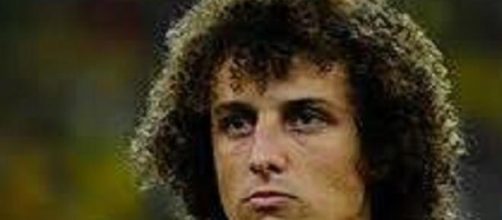The main awards at the glitzy Fifa Ballon d'Or ceremony on Monday evening may have provided few real shocks in terms of the people who received them, as Cristiano Ronaldo quite predictably edged out Lionel Messi and Manuel Neuer, but there were one or two eyebrows raised when the World XI choices were announced.
The world team of the year is determined from the polling of votes by the members of FifPro, the worldwide professional footballers' association. Each year FifPro asks all professional footballers in the world to select their team of the year, comprised of one goalkeeper, four defenders, three midfielders and three strikers.
Given that three players were nominated for the prestigious individual (men's) player of the year, it was only fitting that all three of them featured in the selection, although that was by no means certain given some of the other players that made the team. So Neuer as goalkeeper was a sensible choice, given his performances both during the summer of 2014 in the World Cup for Germany (as they triumphed over Argentina in the final) and also for a solid season with domestic club Bayern Munich. Equally unsurprisingly, the forward line included both the mercurial Messi and the prolific goalscoring Ronaldo, with the tricky speedster Arjen Robben to supplement them, in a strikeforce to worry any defence across the globe.
Toni Kroos, now of Real Madrid, would anchor the side in the centre of the midfield and while he had not joined them by the time they took their Champions League triumph (he played in Germany during the last domestic season), he was instrumental in the German World Cup team. Argentina's Angel di Maria may not be enjoying an entirely fruitful time with new club Manchester United so far this term, but he was clearly picked for his cameo performances in helping the South Americans reach the final in Rio. Alongside them in midfield, Andres Iniesta was an intriguing choice, given Spain's feeble defence of their crown at the World Cup, but he is well admired across the nations and still provides much of the impetus for Barcelona in support of Messi.
Defensively, the World XI choices would seem to be a bit of a hotchpotch at best and any manager sending his side out to play against them, would surely target David Luiz's surprise selection after the mauling his defensive unit took in the World Cup semi-finals. The 'blame' for Brazil's 7-1 thumping at the hands of Germany could surely not be solely attributable to other players around him. His Brazilian teammate Thiago Silva also made the eleven, which was less controversial than Luiz (as he missed the semi-final due to suspension) but still a little odd as many observers were already concerned by the potential frailties in Brazil's back unit long before Germany came to town. The two players that do seem to make sense in that back-four choice would seem to be the ever dependable Philipp Lahm of Germany and Bayern Munich, and Spain's Sergio Ramos, who is generally solid with Real Madrid.
Lahm's return to defence from a midfield 'experiment' during the World Cup was thought to be one of the explanations for how they tightened up after some early worrying performances.
A reserve World XI has also been named with a forward line that bears comparison with the main team, given that it includes headline-making Luis Suarez, PSG's enigmatic Zlatan Ibrahimovic and Neymar, who was perhaps the only real shining star for Brazil at their own World Cup and has posed real attacking threat with Barca since.
Maybe just as perplexing as the final choices for the team of the year were the selections made by England manager Roy Hodgson, who like all of the other international team managers had a vote in the Ballon d'Or. He opted for a top three of Javier Mascherano, Lahm and Neuer, fine players themselves but the omission of both Ronaldo and Messi makes one wonder where he has been watching his football over the past twelve months.
